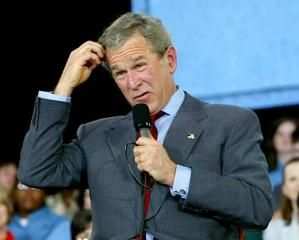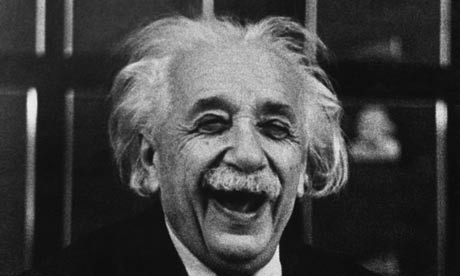Celebrity IQ Scores
Have you ever wondered about celebrity IQ scores? I did, which is why I put together this list of all the known intelligence ratings for your favorite actors and actresses. While IQ scores are interesting to look at, please keep in mind that it’s not a true indication of a person’s smarts. After you look at the list, you’ll notice a few notoriously stupid people with respectable scores, while other will rank lower than you might have expected. For example, Marilyn Vos Savant took an intelligence test when she was 10 years old and scored a 228 on her IQ (the highest ever recorded). She’s never been able to reach that level again, although it’s still a badass distinction to hold.
Since the average American clocks in with an IQ score of 98, let’s see how the Hollywood crowd compares. But first, a note on the IQ ranking system and what it means.
TV episodes & movies from Netflix – now instantly to your TV! Free trial
IQ Score Ranking System
The following ranking system shows what each IQ score means.
- 140 + – Genius or near genius
- 130 – 139 – Gifted
- 120 – 129 – Very Superior Intelligence
- 110 – 119 – Superior Intelligence
- 90 – 109 – Average Intelligence
- 80 – 89 – Dullness
- 70 – 79 – Borderline deficiency
- 50 – 70 – Mild mental retardation
- 35-50 – Moderate mental retardation
- 20 – 35 – Severe mental retardation
- < 20 – Profound mental retardation
Here are a few facts about IQ scores that you might find interesting:
- 99.5% of IQ scores fall between 60 and 140
- 95% of IQ scores fall between 70 and 130
- 70% of IQ scores fall between 85 and 115
- 50% of IQ scores fall between 90 and 110
- An IQ score of 134 is in the top 1%
- An IQ score of 66 is in the bottom 1%
Historical IQ Scores
Before we get to the celebrity IQ scores, let’s take a look at the estimated or verified IQ scores for some historical figures and non-Hollywood celebrities. For all the long dead folks, we got the numbers from The Calculated IQ Estimates for 301 Historic Geniuses, a book by American psychologist Catherine Cox Miles.

- Marilyn Vos Savant – 228 IQ
- Stephen Hawking – 160 IQ
- John F. Kennedy – 119 IQ
- Bill Clinton – 137 IQ
- Dwight Eisenhower – 122 IQ
- George W. Bush – 125 IQ (a perfect example of how IQ scores don’t always measure true intelligence)
- George Bush, Sr. – 98 IQ
- Ronald Regan – 105 IQ
- Beethoven – 165 IQ
- Benjamin Franklin – 160 IQ
- Gerald Ford – 121 IQ
- Jimmy Carter – 156 IQ
- Hilary Clinton – 140 IQ
- Bill Gates – 160 IQ
- Albert Einstein – 160 IQ
- Garry Kasparov – 190 IQ
Celebrity IQ Scores
Some of these celebrity IQ scores are verified (Geena Davis, for example), while other estimates are believed to be accurate. Many of these individuals belong to MENSA, an organization whose members must score in the top 2% of a supervised intelligence test. Compare it to the list above, and you might be surprised to find that five celebs have IQs equal to or greater than Albert Einstein. If the father of modern physics hadn’t come up with the Special Theory of Relativity, I’m sure Quentin Tarantino would’ve eventually done so.
- Andy Warhol – 86 IQ. He may not have scored high on his IQ test, but Warhol could sure paint a mean can of soup.
- Arnold Schwarzenegger – 135 IQ. While many may consider him a meathead, this Austrian-turned-American rose from being a bodybuilder to the governor of California. In between, he was one of the top movie stars for well over a decade.
- Dolph Lundgren – 160 IQ. The massive action star attended the Royal Institute of Technology in Stockholm, Sweden. In 1982, he received a master’s degree in chemical engineering from the University of Sydney, New South Wales, Australia. The following year, he was awarded a Fulbright Scholarship to MIT. And all this while training to beat Rocky Balboa on behalf of the Soviet Union.
- Geena Davis – 140 IQ. A longtime member of MENSA, Davis is fluent in Swedish and plays piano, flute, drums, and the organ.
- James Woods – 180 IQ. Woods scored a 1579 on his SAT test to get accepted to MIT, but then he dropped out to pursue acting.
- Jayne Mansfield – 149 IQ. Best known for her massive breasts (measurements of 40-21-35) and fatal car wreck at the age of 34, Mansfield was also a classically trained pianist and violinist who spoke five languages.
- Jodie Foster – 132 IQ. Foster graduated as valedictorian from the French-speaking Lycee Francais de Los Angeles, after which she attended Yale and graduated magna cum laude with a degree in literature.
- Madonna – 140 IQ. It’s no surprise that Madonna has a high IQ. After all, she’s been able to remain relevant in the world of pop culture for three decades.
- Masi Oka – 180 IQ. Known as the likable Hiro on Heroes, he was featured on the cover of Time magazine when he was 12 years old. The caption? “Those Asian-American Whiz Kids.” Fluent in three languages, he has a degree in computer science and mathematics.
- Nicole Kidman – 132 IQ. While she didn’t have the good sense to avoid a marriage to crazy-ass Tom Cruise, the leggy Aussie does have a celebrity IQ in the gifted range.
- Brett Favre – 104 IQ. The quarterback for the Packers, Jets, and Vikings, Favre made appearances in Something About Mary and Reggie’s Prayer. Still, he’s not smart enough to know when to retire.
- Danica McKellar – 154 IQ. Known as Winnie from The Wonder Years, McKellar has a degree in mathematics from UCLA and has written two best-selling books on the topic.
- Quentin Tarantino – 160 IQ. A high school dropout, Tarantino worked in an L.A. video store while trying to make it as an actor. As it turned out, he would make his mark as a director and one of the most influential figures of the modern pop culture scene.
- Sharon Stone – 148 IQ. Even though she’s best known for uncrossing her legs, this blonde vixen claimed for years to be a member of MENSA. She later admitted this was not the truth, so you have to wonder about her IQ claim.
- Steve Martin – 142 IQ. The movie star and banjo-playing comic was once a philosophy major at Cal State. During those years, he considered becoming a professor.
- Ellen Muth – 156 IQ. One of the stars of Showtime’s Dead Like Me, Muth is also a member of MENSA and Intertel.
- Laura Shields – 160 IQ. A British model and actress with an masters degree in Chemical Engineering from Leeds University. A member of MENSA, she’s put her high IQ to the test by serving as a suitcase holder on the game show Deal or No Deal.
- Muhammad Ali – 78 IQ. Ali might not have been working for NASA anytime soon, but he sure knew how to interact with people. And, of course, when did punching people in the face ever require a big brain?
- Sir Jimmy Savile – 149 IQ. This British DJ, actor, and radio personality has received an honorary Doctor of Laws from Leeds University, as well as being made an honorary fellow of the Royal College of Radiology.
- Asia Carrera – 156 IQ. A now-retired porn actress who starred in the adult film-within-a-film from The Big Lebowski known as Logjammin’. In real life, Carrera twice played piano at Carnegie Hall as a youth, and she later attended Rutgers University. A member of MENSA, Carrera also designed and maintained her own adult website, including writing all the code.
That concludes our look at celebrity IQ scores. For more quality articles from Only Good Movies, be sure to check out the following:
This entry was posted on Tuesday, October 5th, 2010 at 6:09 pm and is filed under Interesting Movie Facts, Movie News, Thoughts on Film. You can follow any responses to this entry through the RSS 2.0 feed. You can leave a response, or trackback from your own site.
17 Responses to “Celebrity IQ Scores”
My IQ is 190.
Wait a minute.. according to this Madonna is a genius ?
Hi there, I appreciate the work you put into this. Keep it up.
The Mensa Society test isn’t hard because there is a two year old genius with the score of at least 160 and another 11 year old with a score of 162. Please have a sense of humour, even if genius- a child at 2 years old Oscar WRIGLEY with an iq of at least 160???!
The test couldn’t be that difficult, c’mon 2 years old????? the child didnt even start kindergarden as yet and took the same test as everyone else.
I’ve been looking at different celebrity IQ lists and what I’ve noticed is that many of them only list the black celebs who have LOW IQ. What about Cornell West, Will Smith, Denzel Washington, Bill Cosby, Taye Diggs, Oprah Winfrey and many more who are very intelligent and well spoken? Surely there must be IQ scores available for some of them. Or is that not the story we want to tell?
Couldn’t have gotten a 1579. Sat scores go by 10’s so maybe a 1570 or 1580 or his publicist made it up
Ali A. is a genius his IQ is 144
Just a few observations:
Although the claim that IQ tests and intelligence formed a ‘strange loop’ from which not much data could be retrieved (i.e. intelligence is defined by the result of an IQ test, and an IQ test results are defined by what we define as intelligence), it has not been until recently that the two most important tools used, the Weschler WAIS-IV and the Standford-Binet, have fallen under harsh scrutiny by the scientific community. They obviously suffer from at least a few major drawbacks, in my opinion:
a) Even though cognitive researchers recognise intertwining thought processes in real-life situations, any test itself is conceived under the arbitrary assumption that intelligence is not only liable to be compartimentalised, but that the situation presents no contradictions and is perfectly tackled with in a meaningful manner through subdivisions of skill sets – both an ad-hoc and an a priori theory that is dangerously close to wishful thinking. Since there is a constant defensive denial that IQ scores are predictors in real life (see the emergence of Emotional Intelligence theories, the g factor… you name it), or actually to anything but the scores themselves, the falsability principle is violated, which sets the tests outside the scope of scientific method. Even if it were not so, one should feel the need for questioning a test that tests nothing but itself…
b) The tests are wrongly treated as based on their (taken for granted) success in getting accurate results, yet they make clear circular assumptions: individual scores are compared with mean averages, and mean averages are manipulated to fit individual results. Let me explain: Takers receive a score related to the amount of population who is expected to belong to the same percentile area; if the general population curve is wrong, no result can be reliable – yet the curve is modified in order to make place for the results in an a posteriori act that ensures a smooth, expected function that, since it is engineered to accommodate everything, provides no meaningful information (a theory that allows any result is no theory at all). If a hard scientist were to develop an experiment based on data collection in order to prove his pet theory, to then manipulate the initial assumptions in order for them to fit with the actual results, we would conclude his methods to be fraudulent, the theory to be unsound, and him to be a charlatan.
c) More often than not, highly gifted people reach the “ceiling effect”: a series of correct answers in a selected category provide no insight whatsoever regarding what the real score should be were the questions more difficult, but rather state a minimum within that skill (i.e., a good industrious Physics student will obtain an A+ in Calculus, which is exactly the same as Euler would get – however, which are the probabilities that such a student’s cognitive ability is comparable to a proved mathematician genius such as Euler? A+ is but a lower limit). Therefore, each test should be customised to each taker; but since the evaluation relies on standard results following a probabilistic pattern (see bullet b), it is a self-beating, contradictory situation.
In a nutshell: IQ results should probably be approached with caution and quite a lot of skepticism. The current trend among experts points to a very high probability that any score above 135 is extremely unreliable.
(On a personal note, I’ve taken full-battery tests four times in my life, and a number that should remain more or less unchanged has shown fluctuations of over 30 points. By the way, a word of caution: no on-line test has anything to do with the real deal!).
P.S.: I’m no psychologist, but a physicist deeply interested in cognitive sciences – therefore, please also note that my post is strictly subjective, and more than probably biased due to lack of information. I’m a dilettante in the field, and do not pretend to be otherwise. If my postulates or conclusions are deemed to be wrong by an expert in the field, I’d be much obliged if corrections could be posted.
P.P.S.: Apologies for my poor English. It’s not my mother tongue, and not even my second nor my third language…
@Biscuit
Could you please share your sources? I happen to know the selection process for Mensa: if you take their test, the score’s not made available even to you (you’re just informed whether you got in or not). The only alternative is to provide a verifiable and certified independent IQ result from a standardised test (the key word being “independent”, meaning not issued by Mensa)…
Thanks!
Lol Ronald Reagan and George bush sr both have / had iq’s much higher than 98 and 105. Those low numbers are laughable. At age18, Bush was the youngest aviator in the military. He went to Yale, then later became the director of central intelligence before becoming Vice President / president. “98” is probably a typo.
The writer of this article’s I.Q.? 83 (the same as John Wayne Bobbitt).
Since your name is Peter, it comes as no surprise that you would have an obsession with John Wayne Bobbitt.
Bush Sr. and his husband came over to my house and personally helped me write the article, so I’m pretty sure it’s accurate.
I would take all these listings with a grain of salt, as few of them can be independently verified. Madonna’s claim of 140 is probably invented, as she has said or done exactly nothing that somebody with an average intellect couldn’t have said or done too. Madonna lost a part in a movie to Geena Davis, and that is roughly when Madonna started claiming 140. It’s as if she had decided to tell everybody that he was six feet tall, in an effort to tie Davis.
I know Ellen Muth, not well but grew up in the same town and went to same school, not friends or anything but from what I know I’ve got to say that score is a little suspect….that is all.




Roberto Autran Nunes
Lisa Simpson has an IQ of 156 and has been a member of Mensa Springfield since 1999.